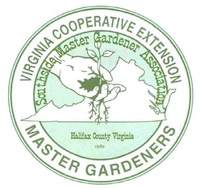VCE Southside Master Gardener
Choosing quality gardening tools are an investment that saves you money in the long run. These tools will last for years and years with the proper sharpening methods and lubrication. Let me tell you some things to look for in tools.
Hand pruners or secateurs, as Martha calls them, are most likely the tool we use the most. There are 2 basic types – bypass pruners or anvil. Personally I prefer the bypass pruners. Bypass pruners have 2 blades that bypass each other to make a clean cut. The kind I have has a rolling handle that moves with your hand to eliminate fatigue. I do not like the type that have a spring between the blades. That often makes the grip too wide for smaller hands. Look for heat-treated steel and titanium coating on the blades is also a big help. Anvil pruners have one blade that hits a flat surface. To me, this type of pruner smashes the cut rather than making a clean break. Some quality pruners offer replacement blades.

A sampling of garden tools that will last for many years and are a great investment.
In a similar vein, I found that a small part of snips comes in handy for deadheading especially roses. I keep a spray bottle of alcohol in my toolkit to spray the snips between roses to cut down on the spread of fungal diseases such as the dreaded black spot. Loppers are basically long handled pruners. Loppers have a capacity to cut harder to reach branches and larger branches. Look for the same attributes as pruners for both the snips and loppers.
For me, weeding is the most common task sad to say. So my two reliable weeding tools are almost like good friends. For most tasks I use a garden knife also known as a hori-hori knife or Japanese knife. It allows me to really dig into the soil to get under taproots. Once I have loosened the root up a bit I find that a claw type weeder allows me to hack it out. For smaller weeds with shallow roots like chickweed I use a hand rake that has sharp tines.
A good trowel is required for planting smaller plants such as herbs and bare root perennials. If you have a stainless trowel, this will also work to help dig soil tests that an aluminum tool would contaminate the results. I also keep a pair of scissors in my tool bucket for opening bags of potting soil, mulch or cutting string on pine tag bales.
Lastly I want to say a word about gloves. It is important to get a pair that truly fits like a glove. If you wear gloves that are too large for your hands you will be overworking your fingers. You need a glove that allows you to pick the tiniest weed. Unfortunately the brand I loved is no longer being made. It had a mesh front and a rawhide palm with reinforced fingers. It came in small, medium and large so was a good fit no matter your hand size. It wasn’t uncomfortable in the summer but kept my hands warm in the winter. So I continue to use the same gloves I bought years ago. Yes the fingers have broken through in some places but for the most part they offer protection. If you know of a glove that has these qualities, please let me know.
While we are all still practicing ‘social distancing’ due to COVID-19, and all county buildings are closed to the public, if you have gardening questions, you can best reach an Extension Master Gardener or Extension staff member by sending an email to wmccaleb@vt.edu or ask@ssmga.org. Keep washing your hands and wearing your mask when you go to a store to look for gardening tools.
